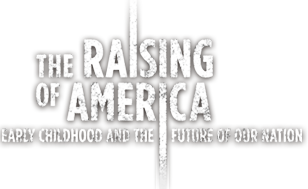The Stressors Can Be Relentless on the Brain
to watch purchased videos
Add to Your Favorites
Remove from Your Favorites
Clip Transcript
NARRATOR: The stressors many children face day to day in neglected communities like North Philadelphia can be relentless.
Victor Carrion, Professor of Psychiatry and Behavioral Sciences, Stanford University School of Medicine :
We can really manage a lot of stressors. If we are crossing the street and we see that a truck is coming at us, we can manage that situation, get scared, jump, and move quickly. Unfortunately, many children in our society feel like a truck is coming at them all day long, for more days than not, and this really takes a toll.
NAR: We know from a new body of research that exposure to chronic stress early in life can lead to actual changes in brain architecture.
Sandra Bloom, Associate Professor, Drexel University School of Public Health:
A child’s development is affected by chronic stress. The impact of the chemicals that are released as a result of stress – that kind of unrelenting drip-drip-drip that affects then the way the brain develops. So language functions, the ability to think clearly, the ability to focus, to organize thoughts – all of that is being laid down in very early childhood. When a child is exposed to toxic stress then the brain is not connecting the way it should.
NAR: Especially toxic for children can be exposure to conflict or violence in the home.
Maria McCoglan, Medical Director, Child Protection Program, St. Christopher’s Hospital for Children:
I remember having a little two-ish, threeish year old child who was hitting their baby doll. Well, they didn’t make that up. Even if they weren’t in the room when the domestic violence occurred or when the physical violence occurred, they still feel those effects very, very deeply.
Sandra Bloom:
They are perceiving the world as dangerous all the time and defending against those feelings by becoming aggressive.
Victor Carrion:
They may have the history of what happened, they may have feelings about what happened: fear, sadness, anger. They may have no words for these feelings, and then they have these behaviors. But they really do not connect all of them. They don’t know that because this happened, I developed these feelings that make me behave this way.
NAR: And for many of us who serve children—we don’t make those connections either. A 2005 study reported the number of children expelled from preschool for behavioral problems at three times the expulsion rate for K to 12 students. In 2012, in Connecticut alone, 2,000 children 6 years and under—overwhelmingly black and Latino—were suspended from kindergarten and preschool, dramatically increasing their risk of dropping out later – and being sent to prison. Instead of labeling them as bad kids, why don’t we see them as children facing adversities that other children don’t? Why are we re-traumatizing young people who are already traumatized?


